I have a simple Spark app generating Kafka messages by
import org.apache.spark.sql.SparkSession
import org.apache.spark.sql.functions.{col, struct}
import org.apache.spark.sql.avro.functions.to_avro
import org.apache.spark.sql.types.{DoubleType, LongType, StructType}
object IngestFromS3ToKafka {
def main(args: Array[String]): Unit = {
val spark: SparkSession = SparkSession
.builder()
.master("local[*]")
.appName("ingest-from-s3-to-kafka")
.config("spark.ui.port", "4040")
.getOrCreate()
val folderPath = "s3a://hongbomiao-bucket/iot/"
val parquet_schema = new StructType()
.add("timestamp", DoubleType)
.add("current", DoubleType, nullable = true)
.add("voltage", DoubleType, nullable = true)
.add("temperature", DoubleType, nullable = true)
val df = spark.readStream
.schema(parquet_schema)
.option("maxFilesPerTrigger", 1)
.parquet(folderPath)
.withColumn("timestamp", (col("timestamp") * 1000).cast(LongType))
.select(to_avro(struct("*")).alias("value"))
val query = df.writeStream
.format("kafka")
.option(
"kafka.bootstrap.servers",
"hm-kafka-kafka-bootstrap.hm-kafka.svc:9092"
)
.option("topic", "hm.motor")
.option("checkpointLocation", "/tmp/checkpoint")
.start()
query.awaitTermination()
}
}
I have a Avro schema at Apicurio Registry created by
curl --location 'http://apicurio-registry-apicurio-registry.hm-apicurio-registry.svc:8080/apis/registry/v2/groups/hm-group/artifacts' \
--header 'Content-type: application/json; artifactType=AVRO' \
--header 'X-Registry-ArtifactId: hm-iot' \
--data '{
"type": "record",
"namespace": "com.hongbomiao",
"name": "hm.motor",
"fields": [
{
"name": "timestamp",
"type": "long"
},
{
"name": "current",
"type": "double"
},
{
"name": "voltage",
"type": "double"
},
{
"name": "temperature",
"type": "double"
}
]
}'
I am trying to use Apicurio Registry's Confluent compatible REST API endpoint. Currently using Content ID 26 to retrieve
curl --location 'http://apicurio-registry-apicurio-registry.hm-apicurio-registry.svc:8080/apis/ccompat/v6/schemas/ids/26' \
--header 'Content-type: application/json; artifactType=AVRO' \
--header 'X-Registry-ArtifactId: hm-iot'
which prints
{
"schema": "{\n \"type\": \"record\",\n \"namespace\": \"com.hongbomiao\",\n \"name\": \"hm.motor\",\n \"fields\": [\n {\n \"name\": \"timestamp\",\n \"type\": \"long\"\n },\n {\n \"name\": \"current\",\n \"type\": \"double\"\n },\n {\n \"name\": \"voltage\",\n \"type\": \"double\"\n },\n {\n \"name\": \"temperature\",\n \"type\": \"double\"\n }\n ]\n}",
"references": []
}
which looks good.
Based on Aiven's JDBC connector doc, I wrote my JDBC sink connector config:
{
"name": "hm-motor-jdbc-sink-kafka-connector",
"config": {
"connector.class": "io.aiven.connect.jdbc.JdbcSinkConnector",
"tasks.max": 1,
"topics": "hm.motor",
"connection.url": "jdbc:postgresql://timescale.hm-timescale.svc:5432/hm_iot_db",
"connection.user": "${file:/opt/kafka/external-configuration/hm-iot-db-credentials-volume/iot-db-credentials.properties:timescaledb_user}",
"connection.password": "${file:/opt/kafka/external-configuration/hm-iot-db-credentials-volume/iot-db-credentials.properties:timescaledb_password}",
"insert.mode": "upsert",
"table.name.format": "motor",
"value.converter": "io.confluent.connect.avro.AvroConverter",
"value.converter.schema.registry.url": "http://apicurio-registry-apicurio-registry.hm-apicurio-registry.svc:8080/apis/ccompat/v6",
"transforms": "convertTimestamp",
"transforms.convertTimestamp.type": "org.apache.kafka.connect.transforms.TimestampConverter$Value",
"transforms.convertTimestamp.field": "timestamp",
"transforms.convertTimestamp.target.type": "Timestamp"
}
}
However, I got this error in my Kafka Connect log
2023-05-01 19:01:11,291 ERROR [hm-motor-jdbc-sink-kafka-connector|task-0] WorkerSinkTask{id=hm-motor-jdbc-sink-kafka-connector-0} Task threw an uncaught and unrecoverable exception. Task is being killed and will not recover until manually restarted (org.apache.kafka.connect.runtime.WorkerTask) [task-thread-hm-motor-jdbc-sink-kafka-connector-0]
org.apache.kafka.connect.errors.ConnectException: Tolerance exceeded in error handler
at org.apache.kafka.connect.runtime.errors.RetryWithToleranceOperator.execAndHandleError(RetryWithToleranceOperator.java:230)
at org.apache.kafka.connect.runtime.errors.RetryWithToleranceOperator.execute(RetryWithToleranceOperator.java:156)
at org.apache.kafka.connect.runtime.WorkerSinkTask.convertAndTransformRecord(WorkerSinkTask.java:518)
at org.apache.kafka.connect.runtime.WorkerSinkTask.convertMessages(WorkerSinkTask.java:495)
at org.apache.kafka.connect.runtime.WorkerSinkTask.poll(WorkerSinkTask.java:335)
at org.apache.kafka.connect.runtime.WorkerSinkTask.iteration(WorkerSinkTask.java:237)
at org.apache.kafka.connect.runtime.WorkerSinkTask.execute(WorkerSinkTask.java:206)
at org.apache.kafka.connect.runtime.WorkerTask.doRun(WorkerTask.java:202)
at org.apache.kafka.connect.runtime.WorkerTask.run(WorkerTask.java:257)
at org.apache.kafka.connect.runtime.isolation.Plugins.lambda$withClassLoader$1(Plugins.java:177)
at java.base/java.util.concurrent.Executors$RunnableAdapter.call(Executors.java:539)
at java.base/java.util.concurrent.FutureTask.run(FutureTask.java:264)
at java.base/java.util.concurrent.ThreadPoolExecutor.runWorker(ThreadPoolExecutor.java:1136)
at java.base/java.util.concurrent.ThreadPoolExecutor$Worker.run(ThreadPoolExecutor.java:635)
at java.base/java.lang.Thread.run(Thread.java:833)
Caused by: org.apache.kafka.connect.errors.DataException: Failed to deserialize data for topic hm.motor to Avro:
at io.confluent.connect.avro.AvroConverter.toConnectData(AvroConverter.java:124)
at org.apache.kafka.connect.storage.Converter.toConnectData(Converter.java:88)
at org.apache.kafka.connect.runtime.WorkerSinkTask.lambda$convertAndTransformRecord$4(WorkerSinkTask.java:518)
at org.apache.kafka.connect.runtime.errors.RetryWithToleranceOperator.execAndRetry(RetryWithToleranceOperator.java:180)
at org.apache.kafka.connect.runtime.errors.RetryWithToleranceOperator.execAndHandleError(RetryWithToleranceOperator.java:214)
... 14 more
Caused by: org.apache.kafka.common.errors.SerializationException: Error retrieving Avro value schema for id -1330532454
at io.confluent.kafka.serializers.AbstractKafkaSchemaSerDe.toKafkaException(AbstractKafkaSchemaSerDe.java:253)
at io.confluent.kafka.serializers.AbstractKafkaAvroDeserializer$DeserializationContext.schemaForDeserialize(AbstractKafkaAvroDeserializer.java:372)
at io.confluent.kafka.serializers.AbstractKafkaAvroDeserializer.deserializeWithSchemaAndVersion(AbstractKafkaAvroDeserializer.java:203)
at io.confluent.connect.avro.AvroConverter$Deserializer.deserialize(AvroConverter.java:172)
at io.confluent.connect.avro.AvroConverter.toConnectData(AvroConverter.java:107)
... 18 more
Caused by: io.confluent.kafka.schemaregistry.client.rest.exceptions.RestClientException: No content with id/hash 'contentId--1330532454' was found.; error code: 40403
at io.confluent.kafka.schemaregistry.client.rest.RestService.sendHttpRequest(RestService.java:314)
at io.confluent.kafka.schemaregistry.client.rest.RestService.httpRequest(RestService.java:384)
at io.confluent.kafka.schemaregistry.client.rest.RestService.getId(RestService.java:853)
at io.confluent.kafka.schemaregistry.client.rest.RestService.getId(RestService.java:826)
at io.confluent.kafka.schemaregistry.client.CachedSchemaRegistryClient.getSchemaByIdFromRegistry(CachedSchemaRegistryClient.java:311)
at io.confluent.kafka.schemaregistry.client.CachedSchemaRegistryClient.getSchemaBySubjectAndId(CachedSchemaRegistryClient.java:433)
at io.confluent.kafka.serializers.AbstractKafkaAvroDeserializer$DeserializationContext.schemaForDeserialize(AbstractKafkaAvroDeserializer.java:361)
... 21 more
It tries to get Content ID -1330532454, but obviously I don't have this. Mine is at 26. How does the JDBC look for the corresponding AVRO schema?
I am not sure how does it map now. I thought it will look for a schema called hm.motor based on Kafka topic, but turns out not.
Thanks!
UPDATE 1
Thanks @Ftisiot!
I found the document about the Kafka serializers and deserializers.
The Kafka serializers and deserializers default to using
<topicName>-keyand<topicName>-valueas the corresponding subject name while registering or retrieving the schema.
Also for value.converter.value.subject.name.strategy, it uses io.confluent.kafka.serializers.subject.TopicNameStrategy by default.
I have updated my Avro schema name to hm.motor-value, but still got same error.



